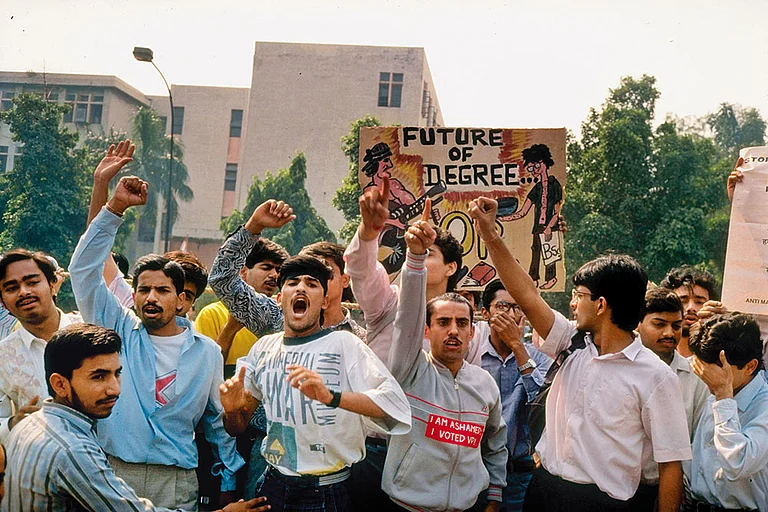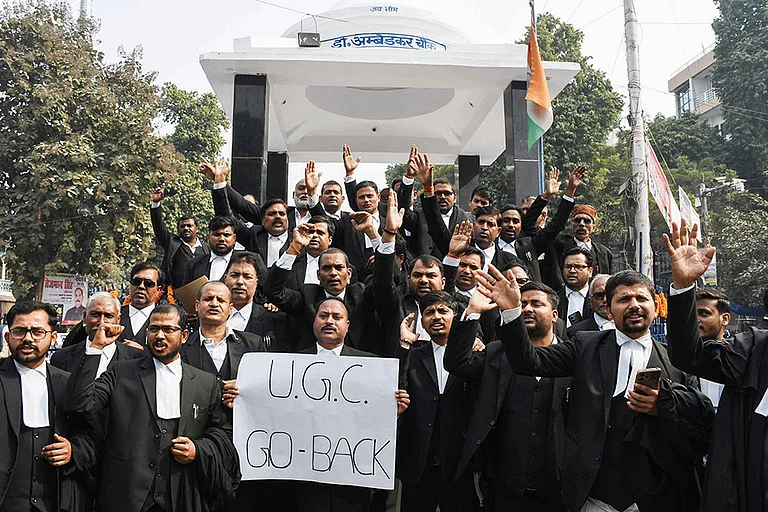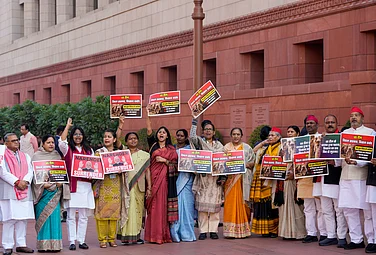In an alarming reminder of gender biases prevalent in society, the United Nations Developmental Programme revealed a set of data that says nine out of 10 people around the world are biased against women.
The data reveals in-depth examples of the biased mindset shared by the majority of people about women and how they should be conducting their lives. According to UNDP, only 27% of the people surveyed believe that women should have the same rights as men making it essential for a democracy. While 25% of people also believe that it is justifiable when a man beats his wife.
According to the reports, this data was collected between 2017 and 2022. The shocking part remains that the data collected in the previous term by Gender Social Norms Index during 2005 and 2014 which was published in 2020 did not have much difference from the latest one.
Pedro Conceição, head of UNDP’s Human Development Report Office said, "Social norms that impair women’s rights are detrimental to society more broadly, dampening the expansion of human development."
The UNDP report reflects the hurdles that women face on a regular basis and crisis of women's rights and majorly a surge of human rights violations throughout the world. The report also reminds the necessity of movements for gender equality and to get them more traction.
Leadership positions
In the professional space, the path for a woman's journey to success is not as smooth as her male counterparts. According to the UNDP data, it says, "half of people worldwide still believe men make better political leaders than women, and more than 40 per cent believe men make better business executives than women."
These biases reflect in power positions of work culture where women are often underrepresented. The UN news claims, "On average, the share of women as heads of State or heads of government has remained around 10 per cent since 1995 and in the labour market women occupy less than a third of managerial positions."
Education and economic empowerment
The UNDP data shows that 28% of people around the world think university education is more important for men than for women. Reports say that women's education has increased over the years, 59 countries in the world have more educated women than men. But the gap lies in income, to date, women are not encouraged enough to pursue a career equally as men. Reportedly, the average gender income gap remains 39 per cent in favour of men. A staggering 42% of the people surveyed believe that men should have more rights to a job than women. This leads to women being unable to become economically empowered as men.
How to improve the situation?
Conceição noted that the global Human Development Index (HDI) declined in 2020 and the following years, he said "Lack of progress on gender social norms is unfolding against a human development crisis." He also added, "Everyone stands to gain from ensuring freedom and agency for women."
The UNDP believes that the governments have a crucial role in playing a part in bringing change in each of the countries. Raquel Lagunas, Director of UNDP’s gender team.
Raquel Lagunas, Director of UNDP’s gender team, said, "An important place to start is recognizing the economic value of unpaid care work." He added, "This can be a very effective way of challenging gender norms around how care work is viewed. In countries with the highest levels of gender biases against women, it is estimated that women spend over six times as much time as men on unpaid care work.”
The data also showed that the percentage of people with no bias has increased from the previous years in 27 out of 38 countries they surveyed in.Reports say that to encourage gender equality, "the focus needs to be on expanding human development through investment, insurance, and innovation."
Some of the other ways to ensure gender equality, laws and policymaking are quite important. Encouraging women to participate in changing policies and politics can rule out several gender stereotypes, according to the report.
The report also says combatting online hate speech and gender misinformation can lead to the internet becoming a safer space for women.


























